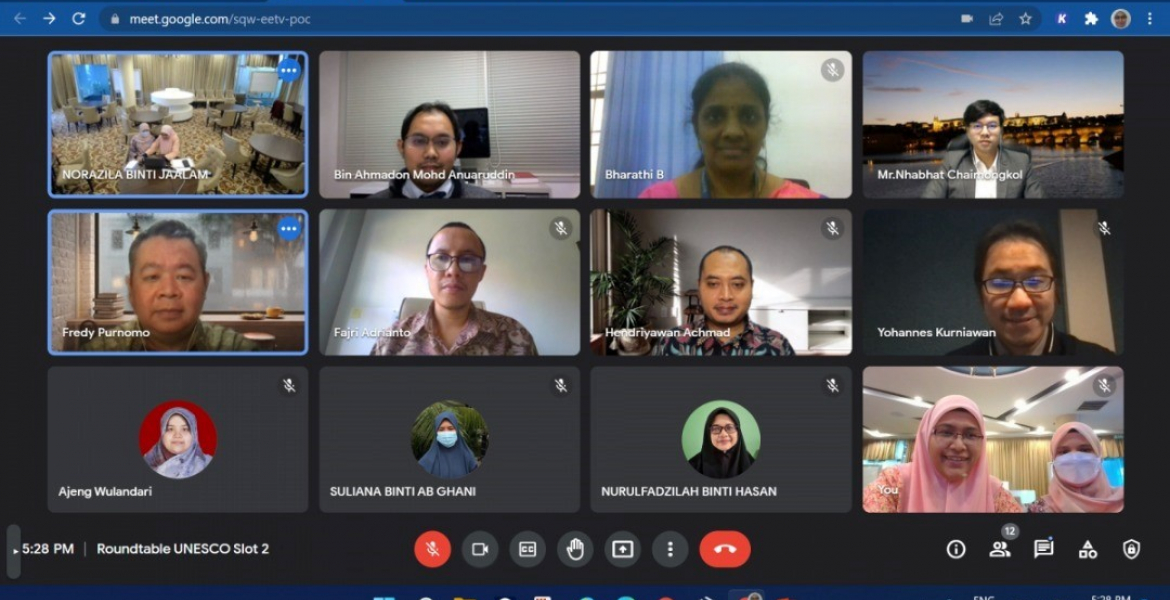Roundtable discussion reviews digital efficiency for global information literacy
KUANTAN, 18 March 2022 – A total of 24 experts from all over the country participated in an online roundtable discussion on the efficiency of media literacy and information organised by Universiti Malaysia Pahang (UMP) in collaboration with the United Nations Educational Scientific and Cultural Organization (UNESCO) recently.
The programme was officiated by the UMP Vice-Chancellor, Professor Dato’ Ts. Dr. Yuserrie Zainuddin.
In his speech, he said the programme was a platform to develop a knowledge and collaboration network in the competency of information digitalisation with experts from within and outside the country.
The programme was also participated by experts from various countries including Indonesia, the Philippines, Australia, Japan and Montenegro.
Among the items discussed include elements of digital competency and challenges and opportunities in raising public awareness of information and media literacy.
According to Professor Dato’ Ts. Dr. Yuserrie, digital skills are crucial in this century and digital literacy has become a must for every individual with information accessible at the fingertips with just one click.
“Therefore, our role is crucial in ensuring that society can improve the efficiency of digital literacy.
“I would also like to express my gratitude especially to UNESCO and the Ministry of Communications and Multimedia Malaysia who have always supported the ‘Celik Digital@UMP STEM Lab’ programme: Digital Competencies for Information Literacy’ at UMP which plays a role in assisting the community in providing digital literacy exposure to the local community.
“I hope that this programme will also provide a better understanding of digital literacy and in turn contribute to society,” he said.
Meanwhile, Assistant Vice-Chancellor, Department of Industrial and Community Collaboration (JKIM), Associate Professor Ir. Dr. Nurul Hazlina Noordin said, among the resolutions reached in the programme was to conduct awareness programmes related to artificial intelligence (AI) technology in disseminating information.
“In addition, the integration of media literacy and information components will be enhanced in formal education in schools.
“Society will also be educated to use the best practices as recommended in the UNESCO Information for All Programme (IFAP) which is information accessibility and analysis.
“I also hope that this effort will foster the community to be ethical in disseminating information to curb the spread of false information,” he said.
By: Nor Salwana Mohammad Idris, Corporate Communications Unit, The Office Of The Vice-Chancellor
Translation by: Dr. Rozaimi Abu Samah, Engineering College/Faculty of Chemical And Process Engineering Technology
- 84 views










